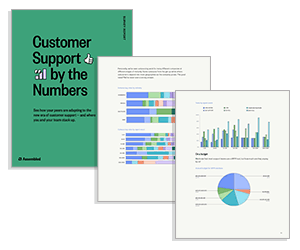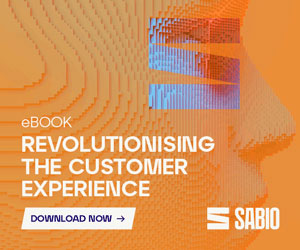Whitney Rose at Assembled explores how the champion-challenger model can help businesses optimize their outsourcing partnerships.
Inflation, labor shortages, and the rise of AI (oh my!) – customer support is evolving fast. According to a 2024 McKinsey survey, 37% of customer care leaders are laser-focused on cutting costs. One of the top strategies? Outsourcing.
But today’s outsourcing partnerships go well beyond traditional call and email handling. They’re becoming deeper, more collaborative, and more innovative.
From content management and payments handling to the development of AI-powered customer care tools, BPOs are now strategic partners in driving customer support innovation.
In fact, some businesses are even partnering with their BPOs to establish global innovation hubs, pushing the boundaries of next-gen customer care technologies.
To stay competitive, you need to be smarter about how you optimize these partnerships. The champion-challenger model is one of the most effective strategies for keeping your BPOs sharp and driving continuous improvement.
What Is the Champion-Challenger Model?
The champion-challenger model is all about pushing your BPO partners to constantly improve. Here’s how it works: you establish a ‘champion’ BPO that sets the standard while a ‘challenger’ tests new strategies, workflows, or solutions to outperform them.
The goal? A cycle of continuous improvement – keeping both partners sharp and customers satisfied. As AI and automation reshape customer support, this model becomes essential for maintaining a competitive edge.
A Competitive Edge for Optimizing Your BPOs
By putting the champion-challenger model to work, you can:
Cut Costs Where It Counts
With a challenger constantly pushing to beat the champion, your BPOs are motivated to find efficiencies in everything from staffing to adopting new tech.
This isn’t about slashing budgets but about identifying hidden savings – the kind that add up over time and keep your team running lean.
Boost Quality Without Missing a Beat
Healthy competition creates a culture of improvement. BPOs can experiment with new tools and workflows, all while keeping your operations smooth.
That means faster responses, more accurate resolutions, and happier customers, without the hassle of service disruptions. As your partners level up, your internal team can focus on bigger priorities instead of firefighting.
Stay Flexible in a Changing World
From unexpected surges in customer requests to rolling out advanced AI tools, the champion-challenger model keeps you adaptable.
One partner might excel in AI, while the other focuses on streamlining human-led support. This diversity means you can stay nimble, try new things, and keep scaling without sacrificing quality or speed.
Reduce Risk
Putting all your eggs in one BPO basket is risky, especially when things shift unexpectedly. The champion-challenger model spreads that risk.
If one provider stumbles, the other steps in to keep things running smoothly, protecting your operations from disruptions.
As outsourcing relationships evolve and take on more strategic roles, the champion-challenger model offers a dynamic, flexible approach to getting even more from your BPO partners. The result? Quick wins today, with long-term payoffs tomorrow.
How to Put the Champion-Challenger Model Into Action
Implementing the champion-challenger model takes more than just assigning labels – it requires a structured approach to drive continuous improvement. Here’s how to make it work:
Set Clear Benchmarks
Define the KPIs that reflect your broader support goals. For example, are you prioritizing speed, quality, or a balance of both?
Consider metrics like CSAT, AHT, First Contact Resolution (FCR), and even more granular data like response times during peak hours or resolution rates for complex issues.
Make sure both the champion and challenger understand these benchmarks from the start – and tie performance directly to incentives that reward exceeding expectations.
Encourage Experimentation
The real power of the challenger role lies in its ability to experiment. Allow your challenger BPO the room to test innovative strategies, whether it’s integrating AI-driven chatbots for faster first responses or implementing new workflows that reduce escalations.
Consider piloting new tools or technologies with smaller segments of your customer base before scaling up, ensuring the risk is manageable while still fostering creativity.
Schedule Regular Reviews
Don’t wait until the end of the quarter to review progress. Regular, ongoing performance checks – even monthly – will allow for quicker course corrections and ensure that both BPOs stay aligned with your evolving needs.
Use these reviews to discuss not just the numbers, but the insights and learnings behind them. Ask: What’s working, what isn’t, and where are there opportunities to tweak or double down on certain strategies?
Foster Collaboration
While the champion-challenger model is built on competition, collaboration between your BPOs is key to maintaining overall consistency.
Encourage both partners to share best practices or successful innovations that can benefit your entire operation.
For example, if the challenger has developed a more effective escalation process, that insight could help the champion optimize their own workflow. A spirit of friendly rivalry, backed by a shared goal of delivering world-class customer support, can go a long way.
Prepare for Turnover
BPO partnerships aren’t static. Over time, you may see your challenger outperform the champion. Be ready to recalibrate roles as necessary, giving your top performers the opportunity to take the lead while new challengers rise to keep pushing the envelope.
This ensures you’re never stagnating and always operating at peak performance, even as business demands shift.
This blog post has been re-published by kind permission of Assembled – View the Original Article
For more information about Assembled - visit the Assembled Website
Call Centre Helper is not responsible for the content of these guest blog posts. The opinions expressed in this article are those of the author, and do not necessarily reflect those of Call Centre Helper.
Author: Assembled
Reviewed by: Megan Jones
Published On: 29th Oct 2024
Read more about - Guest Blogs, Assembled, Whitney Rose






 Assembled is a Support Operations platform that helps companies maintain exceptional customer experiences, no matter what lies ahead. Leading brands use Assembled's workforce and vendor management capabilities to make optimal staffing decisions, gain visibility into performance and productivity, and unlock new ways to serve evolving customer needs.
Assembled is a Support Operations platform that helps companies maintain exceptional customer experiences, no matter what lies ahead. Leading brands use Assembled's workforce and vendor management capabilities to make optimal staffing decisions, gain visibility into performance and productivity, and unlock new ways to serve evolving customer needs. 




























